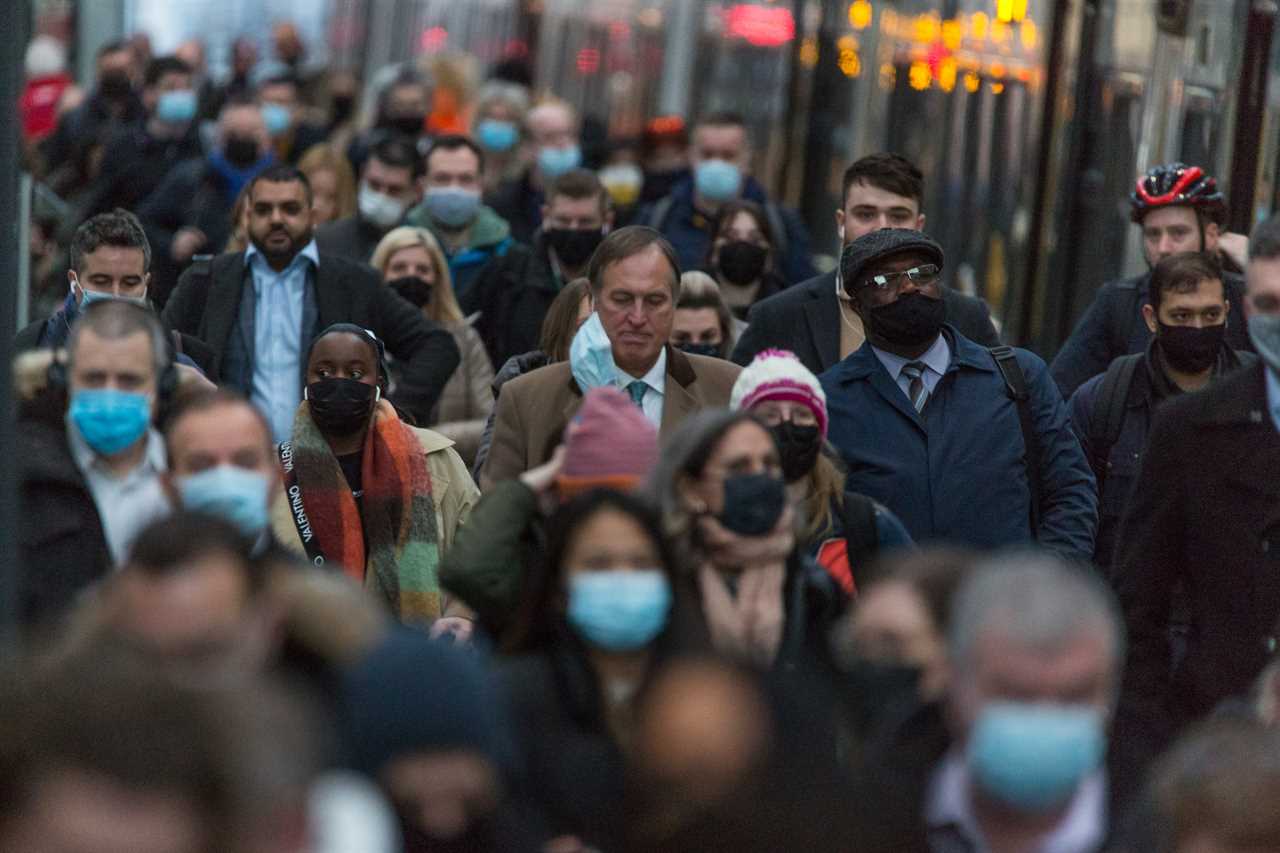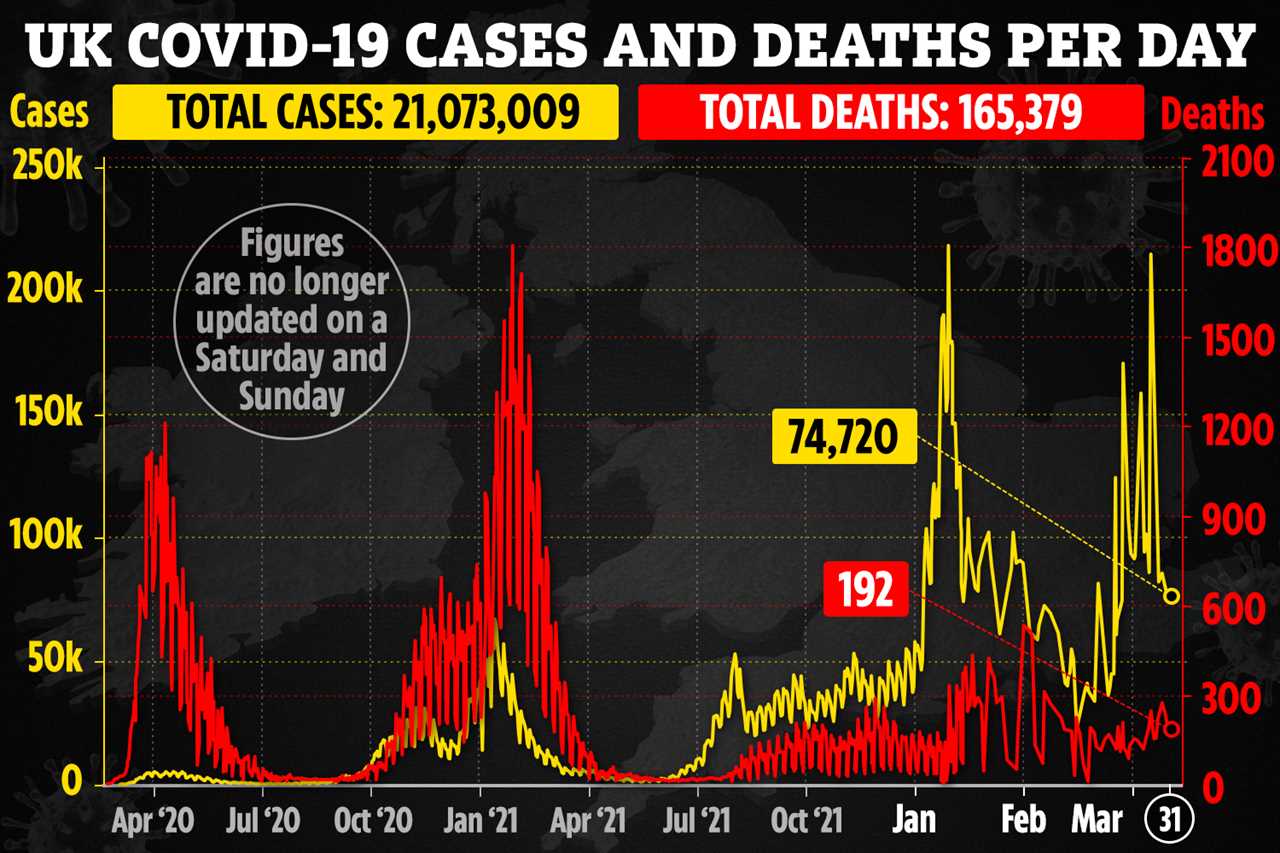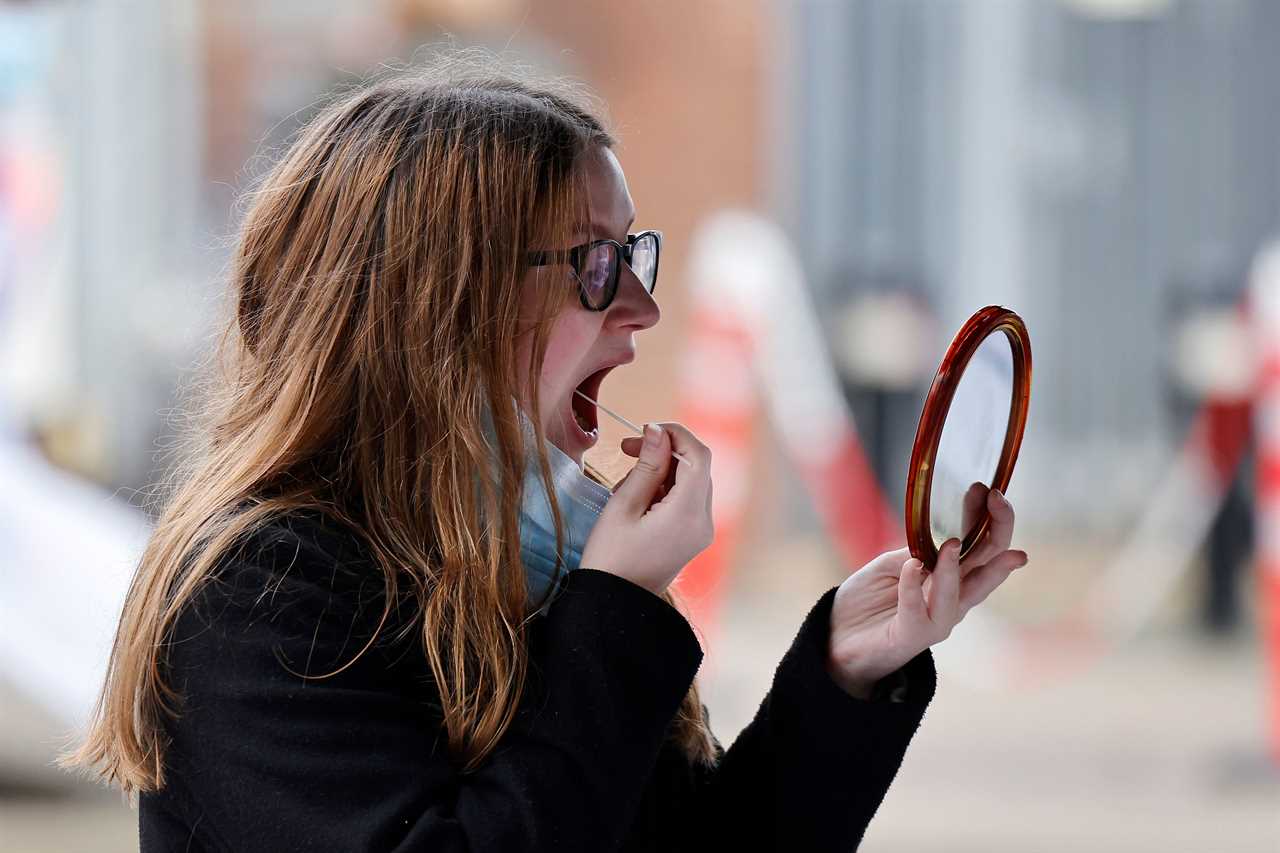MORE Covid rules have been changed today as Britain learns to live with the virus.
Free testing for the majority of people in England has ended, with only those in certain groups able to get hold of lateral flows cost-free.

Anyone wanting to know if they are infected can instead now buy a kit from around £1 for a single, or £10 for a pack of five from pharmacies.
Guidance on isolating with the virus or symptoms of it has also changed today.
While legal rules have been removed since February, anyone who knows they are ill or suspects they might be is still encourage to stay at home where possible.
But previously Brits were told to avoid people for around ten days if ill, but from today this has been changed to five.
Read more on Covid
This is because it is likely you are most infectious within the first five days of being ill.
Children and young people who are ill and have a high temperature should stay at home and avoid contact with others if they can.
They can go back to school, college or childcare when they don’t have a fever and are well enough.
Anyone who has suspected or confirmed Covid or symptoms of a respiratory infection – cough, sneezing, stuffy/runny nose, sore throat, headache, muscle aches, temperature, feeling generally unwell – should stay at home.
From today under new government guidance they should try to avoid contact with other people until they feel well enough and don’t have a high temperature.
Anyone who has tested positive for Covid is now advised to stay at home and avoid contact with people for five days.
Those needing to leave home will be told to avoid close contact with vulnerable people, wear a face mask and avoid crowded spaces, such as rush hour trains.
It is still important to let fresh air in when indoors, wearing face coverings in crowded or enclosed spaces and washing your hands, regardless of symptoms.
Health Secretary Sajid Javid said: “Thanks to our plan to tackle Covid we are leading the way in learning to live with the virus. We have made enormous progress but will keep the ability to respond to future threats including potential variants.
“Vaccines remain our best defence and we are now offering spring boosters to the elderly, care home residents and the most vulnerable – please come forward to protect yourself, your family, and your community.”
ALL CHANGE
In England, from today people will no longer be able to get a free PCR test on the NHS unless they are considered high risk.
And lateral flow tests, which have been the staple of home testing, will no longer be free unless you are in a certain risk group.
The full list includes hospital patients, NHS and prison staff, adult social care workers, and people who are extremely vulnerable, such as the immunosuppressed.
But most visitors to adult social care settings, to the NHS, prisons or places of detention will no longer be required to take a test.
The rest of the UK is set to follow at a later date, with Scotland, Wales and Northern Ireland continuing with some free testing for longer.
The Government says the Test & Trace programme, including free testing, cost £15.7 billion in 2021/22.
But now, population immunity against Covid has never been higher, and the Omicron variant is less severe.

This allows for the bug to be treated like any other, ministers say.
Dame Jenny Harries, Chief Executive of the UK Health Security Agency, said: “As we learn to live with Covid, we are focusing our testing provision on those at higher risk of serious outcomes from the virus, while encouraging people to keep following simple steps to help keep themselves and others safe.
“The pandemic is not over and how the virus will develop over time remains uncertain. Covid still poses a real risk to many of us, particularly with case rates and hospitalisations on the rise.
“That is why it is sensible to wear a mask in enclosed spaces, keep indoor spaces ventilated and stay away from others if you have any symptoms of a respiratory illness, including Covid.
Read More on Trending In The News
“Vaccination remains the best way to protect us all from severe disease and hospitalisation due to Covid infection.
“If you have not yet come forward for your primary or booster I would urge you to do so straight away – the NHS vaccine programme is there to help you and the sooner you are vaccinated the sooner you and your family and friends will be protected.”










